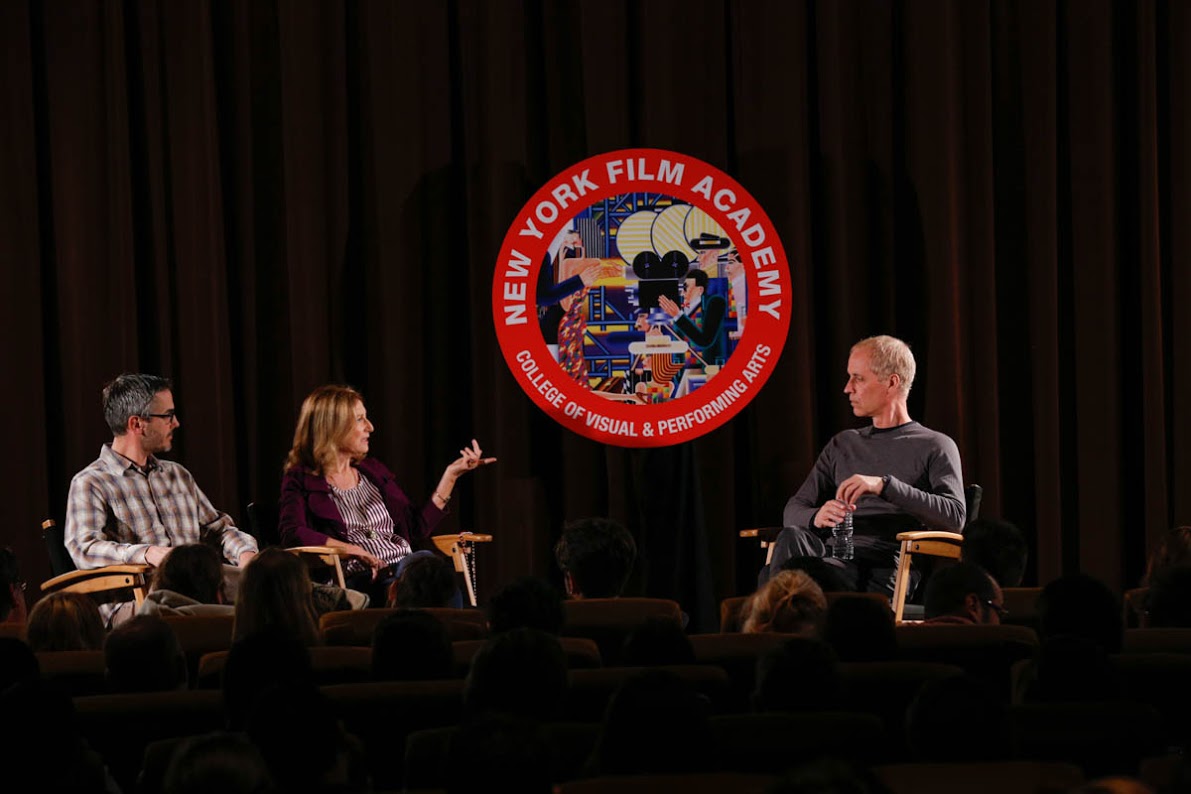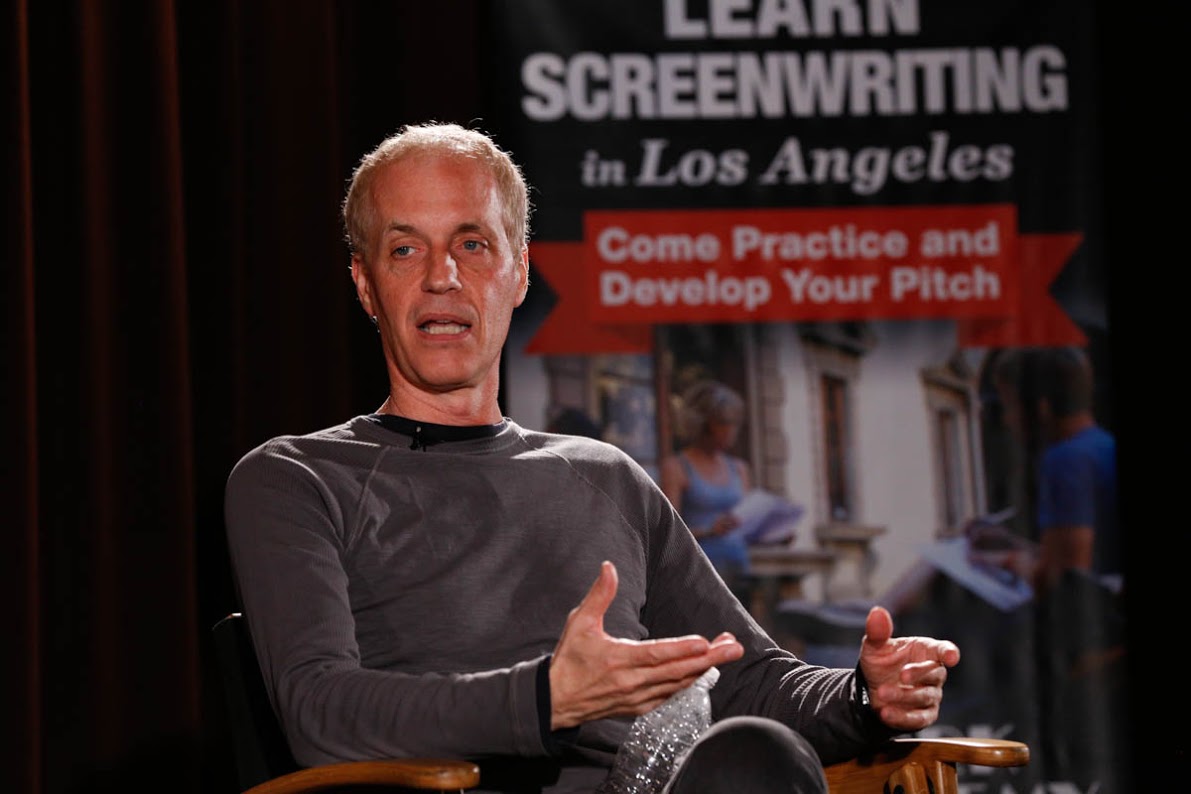
On Thursday, February 12, New York Film Academy Los Angeles students gathered at Warner Bros. studios for a screening of Nightcrawler (2014), starring Jake Gyllenhaal, followed by a Q&A with the film’s Oscar-nominated writer/director Dan Gilroy. Nightcrawler is a chilling, brilliant portrait of a driven young man, desperate for work, who muscles into the world of L.A. crime photo journalism, only to become the star of his own story. Mr. Gilroy is an experienced Hollywood screenwriter – his credits include Two for the Money (Al Pacino & Matthew McConaughey), Real Steel (Hugh Jackman), and The Bourne Legacy (Jeremy Renner) – and Nightcrawler is his directorial debut. He also wrote the film, and his efforts were rewarded with an Oscar nomination for Best Original Screenplay. The Q&A was moderated by producer Tova Laiter and NYFA Dean Mike Civille.
Nightcrawler is the type of film that makes a lasting impression and forces you to think. Hollywood movies almost always feature a redeeming hero with a character arc, and these rules are rarely questioned. However, Mr. Gilroy admits to purposefully making a film with no character arc at all, since this Hollywood standard doesn’t translate to real life. Instead, Louis Bloom, played by Jake Gyllenhaal, doesn’t change throughout the course of the film and he doesn’t learn a single thing that makes him a “better person.” To that end, he says that he intentionally did not create a backstory for Jake Gyllenhaal’s character, to avoid falling into the trap of creating another conventional Hollywood character. The result is a complicated, attractive, yet morally ambiguous protagonist, and an emotionally stirring film that incites much debate on narrative convention and morality in the movies.

Because he made the film outside of the studio system, Mr. Gilroy also says that he had the opportunity to take an unorthodox approach to the screenplay format as well. He says that his script includes no scene headings, no INT. or EXT. indications for locations, no parentheticals, and minimal to no character description. He also played with font size and ellipses, developing a screenplay that reflected his stream of consciousness rather than a traditionally structured script. He recommend that the students read the script as an example of how different a screenplay can be, and described these alternative creative techniques in one word: FREEING.
Mr. Gilroy acknowledged that he wanted to make a film that commented on today’s world, which is focused on “hyper-capitalism” and the predator/prey nature of success. While Louis Bloom has sociopathic tendencies, Mr. Gilroy suggested that Louis’s behavior is a product of modern society, in which competition brings out the “amoral animal” in people. He suggests that he and Jake Gyllenhaal saw Louis Bloom as a starved coyote that comes out of the mountains at night to feed. When Gyllenhaal lost 25 pounds for the role, it thus lent his character a hunger that required his survival instincts to kick in. While this was the central subtext of the film, the commentary is never overdone. Mr. Gilroy encouraged the students to make movies that say something, but cautioned them to avoid making a “message movie.”
Nightcrawler was no easy task for a first time director. The movie was made for a small budget ($8.5 million) and was shot in twenty-eight days with mostly night shoots. Taking this into consideration when experiencing the elevated artistry of the film, it’s truly astounding. There was no room for error when shooting Nightcrawler, yet it seems like a perfect film. How a director with no previous on-set experience pulled that off is mind blowing. Dan Gilroy attributes his success when the odds were against him to his easy-going attitude, and a positive assumption that creativity would allow the best of even the most stressful moments to emerge. He rolled with the punches, collaborated with his team, pushed through, and took ego out of the equation. This is great advice to any director starting out.
Mr. Gilroy insisted on staying until the long line of students had asked every last question. We sincerely thank Mr. Gilroy for taking his time to visit NYFA and offer an incredibly in depth and entertaining Q&A. We highly anticipate his next great work.
